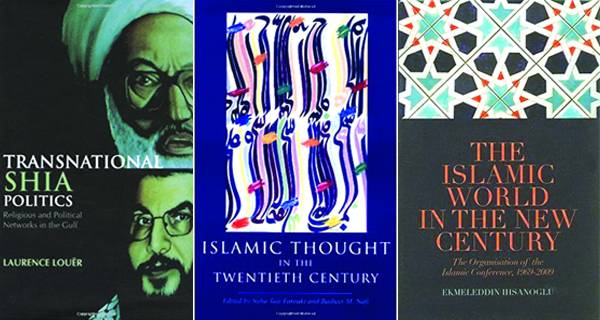
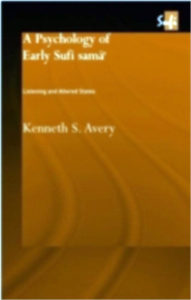
A Psychology of Early Sufi Sama: Listening and Altered States
Kenneth S. Avery
Routledge (2011)
Rs8,451
Avery explores the psychology of altered states among the early Sufis. It examines samâ` - listening to ritual recitation, music and certain other aural phenomena - and its effect in inducing unusual states of consciousness and behaviours. The focus is on the earliest personalities of the Islamic mystical tradition, as mediated by texts from the tenth to the twelfth centuries C.E. These unusual states are interpreted in the light of current research in Western psychology, and also in terms of their integration into historical Islamic culture.
A Psychology of Early Sufi Samâ` provides new insights into the work of five Sufi authors, and a fresh approach to the relation between historical accounts of altered states and current psychological thinking.
Kenneth S. Avery is a specialist in Sufi studies and Persian literature. He is a musician and a recent Ph.D. graduate in Islamic Studies from the University of Melbourne, Australia.
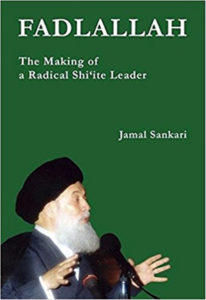
Fadlallah: The Making of a Radical Shi’ite Leader
Jamal Sankari
Saqi Books (2005)
Rs2,765
This unique book traces the trajectory of the enigmatic, multi-faceted, sometimes contradictory personality of Sayyid Fadlallah against a background of cultural, political and economic upheaval in Iran, Iraq, and Lebanon.
Demonized by the West, and denounced by Muslim conservatives for his “moderation” and “innovation” Sayyid Fadlallah was one of the first Islamic figures to condemn the events of 9/11, while at the same time criticizing America’s role in the Middle East. Fadlallah is regarded by many as the spiritual leader of the Islamist party Hizbullah, which is still classified as a terrorist organization by the United States though it has become more mainstream of late. He remains one of the great advocators of dialogue across the Arab and Muslim world.
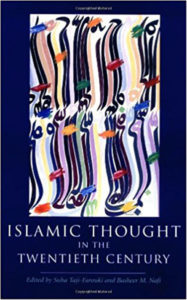
Islamic Thought in the Twentieth Century
Eds Suha Taji-Farouki, Basheer M. Nafi
I.B.Tauris (2004)
Rs6,914
The first of its kind, this book provides in-depth discussions of Islamic thought across the twentieth century, encompassing the breadth of self-expression in Muslim communities worldwide. It explores key themes in modern Islamic thinking, including the social origins and ideological underpinnings of the late 19th- early 20th-century Islamic reformist project, nationalism in the Muslim world, Islamist attitudes towards democracy, Muslim perceptions and constructions of the West, and aspects of Muslim thinking on Christians and Jews. It examines these themes in terms of the historical, political and social conditions of the Muslim world, and its ongoing interactions with the West. An excellent source for students of modern and contemporary Islam, politics and international relations, and the modern history of Islamic societies, this book is essential reading for all professionals dealing with the Muslim world, whether in the media, in governmental and non-governmental agencies, or as politicians and diplomats.
Basheer M. Nafi is Reader in Islamic History at the Muslim College and Adjunct Professor of Islamic Studies at Birkbeck College, University of London. Suha Taji-Farouki is Research Associate at the Institute of Ismaili Studies, London.
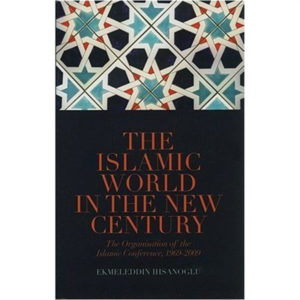
The Islamic World in the New Century: The Organization of the Islamic Conference, 1969-2009
Ekmeleddin Ihsanoglu
Hurst (2010)
Rs6,914
These are challenging times for the world’s fifty-seven Muslim countries and their relationship with the West. The Organization of the Islamic Conference (OIC) is the Muslim world’s intergovernmental body – the largest such organisation outside of the United Nations system and is based in Jeddah, Saudi Arabia.
In 2005, OIC countries elected Ekmeleddin Ihsanoglu of Turkey with a mandate to transform the forty-year-old organisation. Created to respond to the Palestinian crisis, it has since branched out into economic development, education, culture, science, technology, conflict resolution and Islamophobia. This book tells the OIC story, how and why it was formed; its achievements, successes and failures, and why modernisation is needed.
‘Despite its significance in the Muslim world and in the field of NGOs, there is practically no serious and reliable book on the Organisation of the Islamic Conference, its mission, history and activities’. – Ibrahim Kalin, Center for Muslim- Christian Understanding, Georgetown University.
Ekmeleddin Ihsanoglu is the ninth Secretary General of the Organization of the Islamic Conference. He is the founding Director General of the Research Centre for Islamic History, Culture and Arts, based in Istanbul and a past President of the International Union for the History and Philosophy of Science. He is also the author of Science, Technology and Learning in the Ottoman Empire.
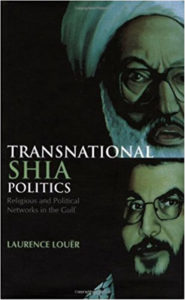
Transnational Shia Politics: Religious and Political Networks in the Gulf
Laurence Louër
Hurst (2008)
Rs3,841
Laurence Louër, author of the critically acclaimed To Be an Arab in Israel, brings her extensive knowledge of the Middle East to an analysis of the historical origins and present situation of militant Shia transnational networks. She focuses on three key countries in the gulf: Kuwait, Bahrain, and Saudi Arabia, whose Shia Islamic groups are the offspring of various Iraqi movements that have surfaced over recent decades. Louër explains how these groups first penetrated local societies by espousing the networks of Shiite clergymen. She then describes the role of factional quarrels and the Iranian revolution of 1979 in defining the present landscape of Shiite Islamic activism in the Gulf monarchies.
The reshaping of geopolitics after the Gulf War and the fall of Saddam Hussein in April 2003 had a profound impact on transnational Shiite networks. New political opportunities encouraged these groups to concentrate on national issues, such as becoming fierce opponents of the Saudi monarchy. Yet the question still remains: How deeply have these new beliefs taken root in Islamic society? Are Shiites Saudi or Bahraini patriots?
Louër’s book also considers the transformation of Shia movements in relation to central religious authority. While they strive to formulate independent political agendas, Shia networks remain linked to religious authorities (marja’) who reside either in Iraq or Iran. This connection becomes all the more problematic should the marja’ also be the head of a state, as with Iran’s Ali Khamenei. In conclusion, Louër argues that the Shia will one day achieve political autonomy, especially as the marja’, in order to retain transnational religious authority, begin to meddle less and less in the political affairs of other countries.
Laurence Louër looks at the increasing visibility of Shiism beyond the stereotyped narratives of sectarian conflict, minority identity, and Iranian policy that are generally invoked to describe the character of Arab Shiism. She gives us a fascinating account of the related yet different historical processes that define Shiite politics and identity in Bahrain, Kuwait, Saudi Arabia, and Iraq. From the economic and educational opportunities that ARAMCO offered its Shiite workers in Saudi Arabia to the nativist politics of Bahrain’s majority; and from the merchant-led mobilization of Kuwaiti Shiism to the clerical origins of sectarian politics in Iraq, we are offered an incredibly detailed and refreshingly original narrative of Shiite activism in the region. (Faisal Devji, St. Antony’s College, University of Oxford, author of The Terrorist in Search of Humanity: Militant Islam and Global Politics)

